The 29th Conference of the Parties (COP29) to the United Nations Framework Convention on Climate Change (UNFCCC) took place in Baku, Azerbaijan from the 11-24 November 2024. This event marked a crucial moment to protect the health of women, children, and adolescent amidst intensifying climate disasters in every corner of the world. Progress in reducing preventable maternal, newborn, and child mortality is already slowing down. As highlighted in the recent 77th World Health Assembly resolution on maternal, newborn and child mortality, climate change poses an additional threat, particularly for women, children and adolescents living in low- and middle-income countries.
PMNCH attended COP29 to emphasize the unique needs of women, children, and adolescents, ensuring their health is considered in climate policies and financing (PMNCH Advocacy Brief on climate change and women’s, children’s, and adolescents’ health). PMNCH’s main recommendations for COP29 urged countries to commit to fair and ambitious climate financing through the New Collective Quantified Goal on Climate Finance (NCQG). This financing is critical to support developing countries and must benefit vulnerable groups, especially women, children, and adolescents.
COP29 Outcomes: Implications for Women’s, Children’s, and Adolescents’ Health
The NCQG agreement, the most contentious agenda item at this year’s COP, requires developed countries to provide at least USD 300 billion per year to developing countries by 2035. This falls significantly short of the USD 1.3 trillion annually that developing countries require and have demanded. While this agreement is a starting point to scale up financing from public and private sources to at least USD 1.3 trillion per year by 2035, it fails to take immediate action to protect the health and build the resilience of women, children and adolescents in developing countries, who are most affected by climate change. These vulnerable groups cannot afford to wait more years to receive sufficient climate financing, as they are already facing severe impacts today. Still, it is encouraging to see that, as PMNCH advocated, countries are urged to ensure climate financing benefits the most vulnerable communities, including women and girls, children and youth (Article 26, Decision -/CMA.6).
Another important topic for women’s, children’s and adolescents’ health at this year’s COP were the gender and climate change negotiations. PMNCH supports the adoption of an enhanced Lima work programme on gender, which sets up a 10-year work programme for more ambitious gender-responsive climate action. Countries also agreed to develop a new gender action plan (GAP) by COP30 in Brazil next year, to encourage more gender- and age-disaggregated data and strengthen gender-responsiveness of climate finance (Articles 8, 13, 20, Decision -/CP.29). However, the negotiations faced significant challenges due to opposition to language about human rights, diversity and intersectionality language. These outcomes show the need to fight against the anti-gender movement and ensure gender issues are central to climate action. This is crucial for protecting the health of women, children, and adolescents.
PMNCH member at COP29: the power of the platform drives effective advocacy
PMNCH members took part in several events to highlight how climate change affects women, children and adolescents, and the need to address their health in climate responses. At the "Clean Air for Children's and Newborn's Health" event, PMNCH Board Member Flavia Bustreo and young leader Francisco Vera emphasized the importance of tackling air pollution in the context of climate mitigation, to improve the health of newborns and children. Additionally, PMNCH worked with the Southern African Development Community Parliamentary Forum to highlight the link between climate change and sexual and reproductive health and rights, and the role parliaments can play in addressing this issue. On Health Day, which saw the launch of the Baku COP Presidencies Continuity Coalition on Climate and Health, Dr Githinji Gitahi, PMNCH Advocacy and Partner Engagement Committee Co-Chair and CEO of AMREF, stressed the how climate change disproportionately affects communities in Africa, who are least responsible for greenhouse gas emissions, and require adequate financing to adapt to climate change. PMNCH also promoted gender-responsive extreme heat plans and highlighted climate injustice against women and girls.
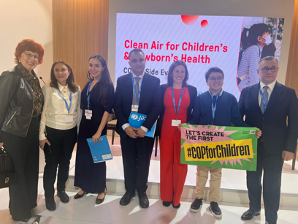 | 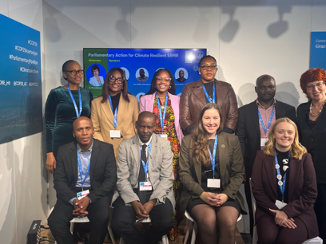 | 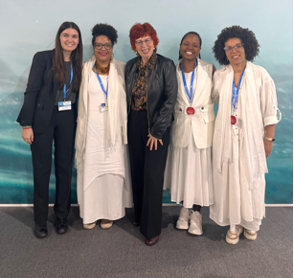 |
As PMNCH takes stock of the outcomes of COP29 which include the agreement on the NCQG and the enhanced Lima work programme on gender, (all COP29 decisions can be accessed here), it is important to recognize the tireless advocacy of women, young people, and healthcare professionals until the final hours of the negotiations. These efforts underscore the importance for PMNCH to continue advocating for strong climate responses and financing leading up to COP30 in Brazil, ensuring that the needs of the most vulnerable populations are met, and their resilience is strengthened in the face of climate change.
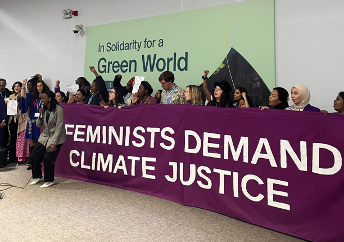 | 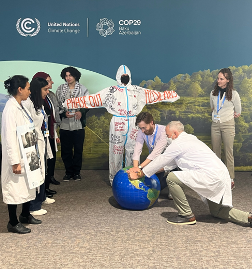 |
Parliamentary Engagement for Climate Action
On November 16-17, the Inter-Parliamentary Union (IPU) and the Milli Majlis of the Republic of Azerbaijan held the second Parliamentary meeting at COP. The meeting saw the adoption of an outcome document outlining steps for stronger parliamentary action on climate change. Thanks to PMNCH’s advocacy at the 149th IPU Assembly in Geneva in October 2024 and the efforts of the IPU Advisory group on Health, the outcomes emphasize the impact of climate change on health (Articles 9-12).They also stress the need for parliaments to address the needs of groups most affected by climate change, especially vulnerable groups like women, children, and young people (Articles 12). PMNCH congratulates the IPU and all parliamentary delegations for this milestone achievements, and looks forward to working with parliamentarians to ensure these goals are implemented as countries prepare to submit their revised Nationally Determined Contributions in 2025.
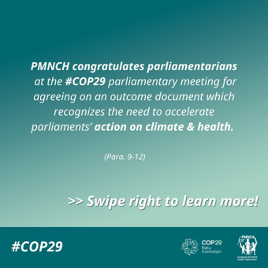 | 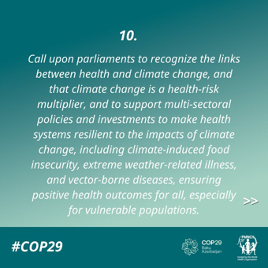 | 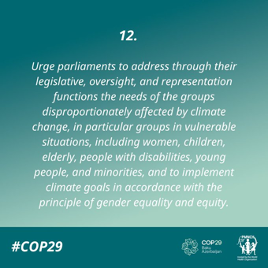 |
Next Steps
Given the outcomes of COP29, stronger political leadership from developed countries and decisive actions is essential. Climate action and financing must be gender- and age-responsive, to address the urgent needs of women, children and adolescents living in the most affected countries. This can only be achieved through the development of an ambitious Gender Action Plan for COP30 in Brazil and the provision of adequate climate financing to developing countries. This is crucial for protecting the health and well-being of women, children, adolescents, and future generations worldwide. PMNCH remains committed to advocating for the health and well-being of these vulnerable groups in the face of the climate crisis.
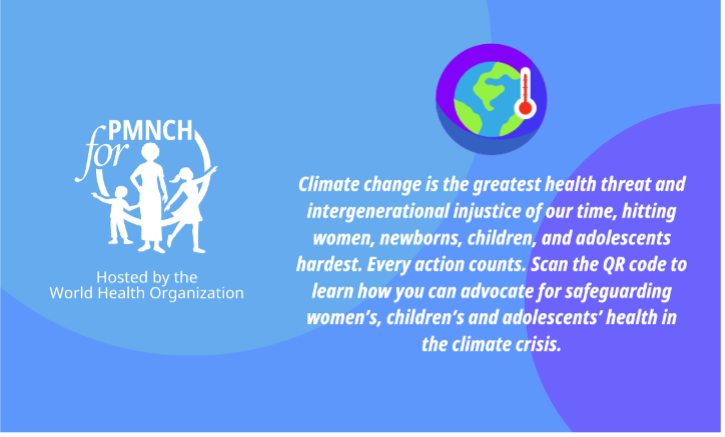

.png?sfvrsn=6d0e27cd_1)



